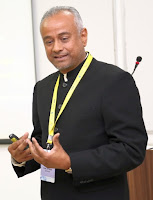Session 1. Ethical Fallacies (Aim: To enhance ethical awareness and guard against tendencies to justify unethical actions.)
Session 2. Principles of Research Ethics (Aim: To familiarise with the core ethical principles for research involving human participants and contextualise the principles in specific projects or social contexts.)
Session 3. Research Integrity (Aim: To appreciate the tenets of responsible conduct of research.)
Session 4. Recognising & Avoiding Plagiarism (Aim: To distinguish among different forms of plagiarism and adopt strategies for avoiding plagiarism.)
Useful resources on the web:
(a) 21 Ethical Fallacies
(b) National Statement on Ethical Conduct in Human Research, Australia
(c) Academic Integrity Information + Resources, The University of New Mexico, Albuquerque
(d) Detecting Essay Fraud
(e) Definitions & Examples of Academic Misconduct, University of California, Berkeley
(f) Contracting to Cheat in Higher Education, The Quality Assurance Agency for Higher Education, UK
(g) Academic Integrity at MIT: A Handbook for Students
(h) The plagiarism spectrum (White paper)
Equivalents of the word "plagiarism" in some Indian languages:
রচনাচুরি
साहित्यिक चोरी
ಕೃತಿಚೌರ್ಯ
ଲେଖାଚୋରି
கருத்துத் திருட்டு



